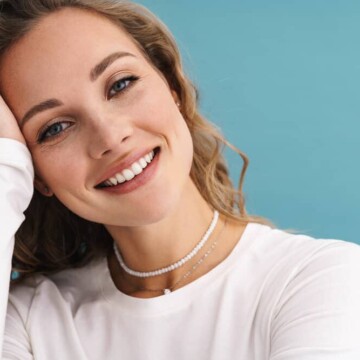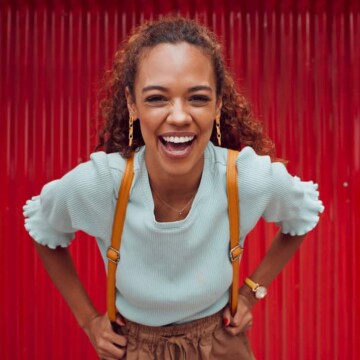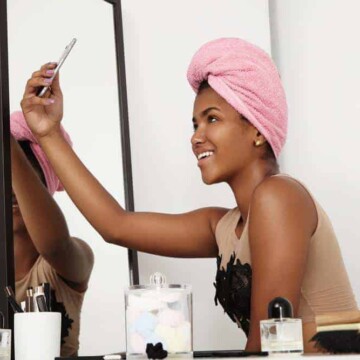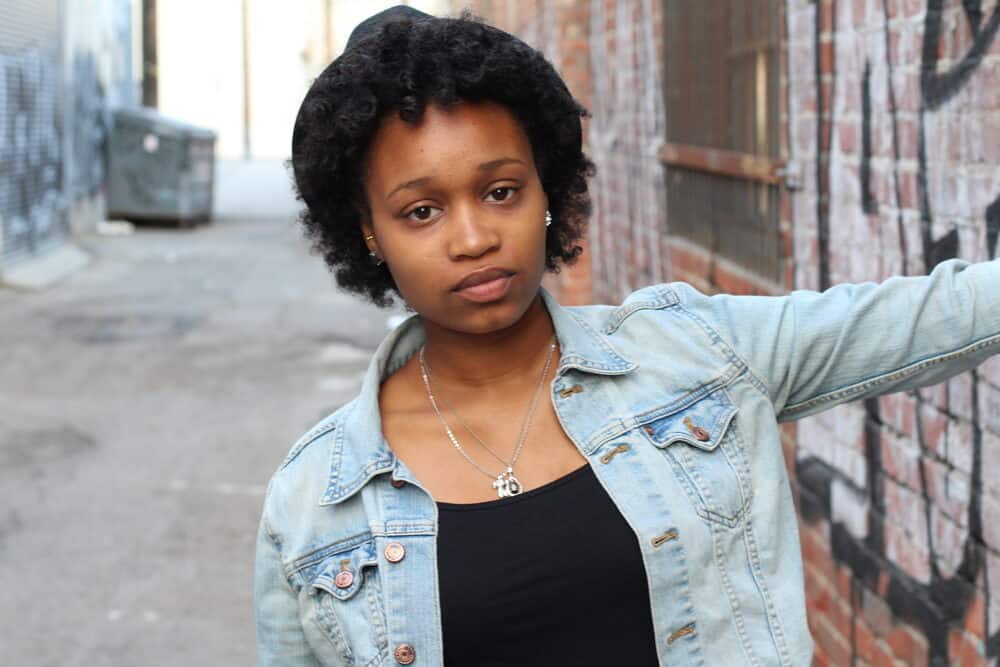
There are so many rumors and preconceptions surrounding black hair, and one of the most widespread ones is that black people don't wash their hair. Some wholeheartedly believe that black hair is dirty and unkempt, others do not, and some are just not sure.
In this article, we'll stomp out the rumors and tell you once and for all whether black people wash their hair, why their hair routines differ from others', and more.
Table of Contents
Do Black People Wash Their Hair?
Let's cut right to the chase. The vast majority of black people do wash their hair. However, they may not wash their hair as often as people with non-black hair. One Black person may wash their hair once per week, while another may opt for biweekly washes. The frequency depends on quite a few variables, including the tightness of their curls, their chosen hairstyle, and much more.
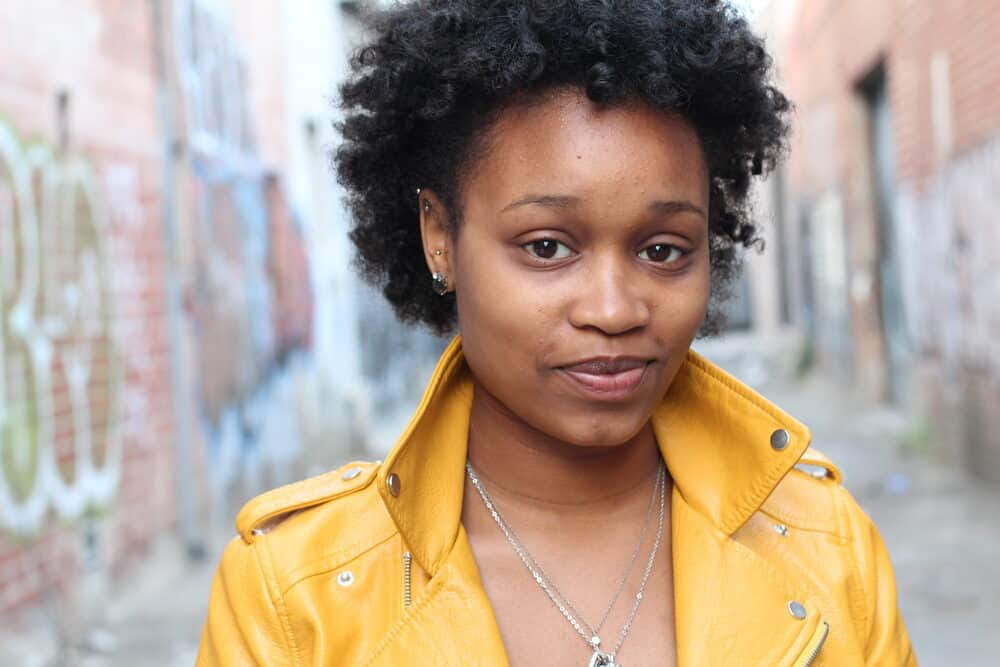
Curls Don't Need to Be Washed Often
Most black people have curly hair, and this hair type does not need to be washed often. Here are some of the reasons why your black friend or associate can go much longer without a wash than you can. Read this case study to learn more about how curly hair is determine by the shape of the hair follicle.
Curls Are Perpetually Dry
We'll start with a bit of hair science. Oil is the name of the game.
Everyone's scalp produces oils, no matter their hair texture. In the scalp, there are "sebaceous glands," which are responsible for producing oils.
These natural oils produced by our sebaceous glands are referred to as "sebum." The sebum is what keeps the hair hydrated, shiny, and, most importantly, healthy.
In people with straight hair, the scalp's oils are easily able to lubricate the entire hair shaft. That's why people with naturally straight or wavy hair wash their hair often.
Since their natural hair oils travel easily from the roots to the ends, their hair gets oily quickly. And this means more washes are necessary.
Curly hair is very different. The curls and kinks, which most black people have, prevent sebum from reaching the ends of the hair. The result? Dry hair that's prone to damage.
If you try washing dry curly hair daily, you'll soon develop breakage, and your curls will look perpetually dull. The dryness could even affect the hair's elasticity, meaning the curls will begin to lose their bounce and resilience.
Since black hair doesn't self-moisturize, curly girls don't, and shouldn't, wash their hair frequently.
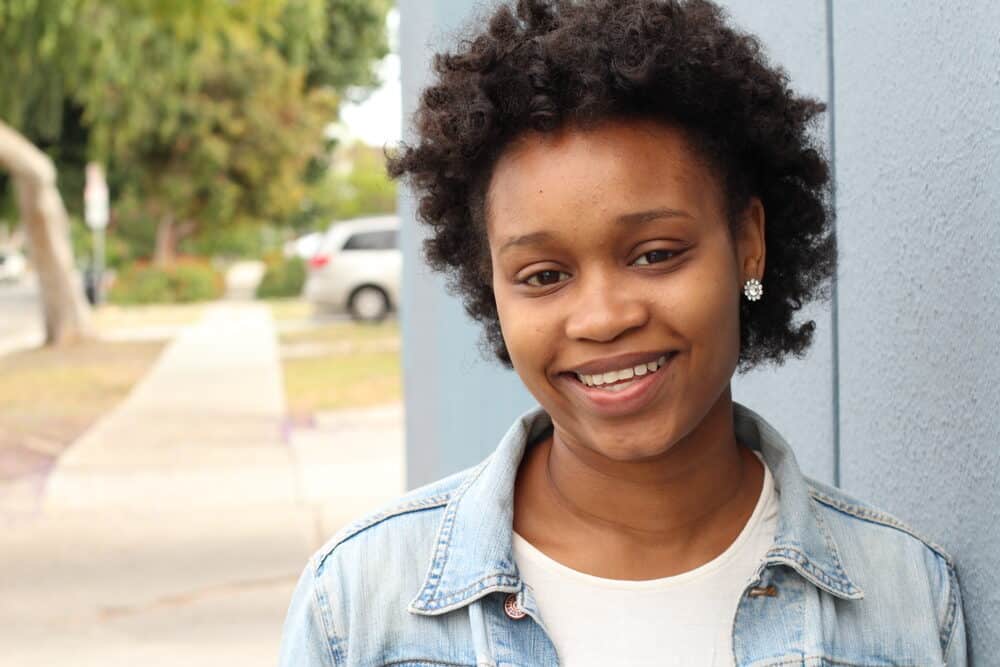
High Porosity Curls Don't Retain Moisture Well
Not only is scalp sebum inefficient at moisturizing curly hair, but high porosity curls lose moisture just as quickly as it's added due to the shape of the hair strand. That means that people with this type of hair struggle with chronic hair dryness and must change their hair routines to combat it.
One of the first changes that black women with high porosity hair make is washing their hair less often.
Note: Not all black women have high porosity hair. Although, for those that have high porosity hair, we recommend that black women wash their hair as needed instead of according to a strict schedule.
Protective Style Preservation
Black women wear some of the most unique hairstyles anyone's ever seen. And many of them take hours to complete, along with money, sweat, and sometimes tears.
That's why some black women avoid washing their hair when it's in an elaborate style. But after the style is removed, the hair is washed thoroughly.
Dreadlocks Only: People with dreads may not wash their hair for long stretches, especially when they first start wearing dreadlocks. This is because, in the starter loc stage, washing causes locks to unravel.
But as locs mature, they can better tolerate washes. In between washes, people with locs use alternative techniques, like witch hazel (for the scalp), apple cider vinegar rinses, and water-only rinses.
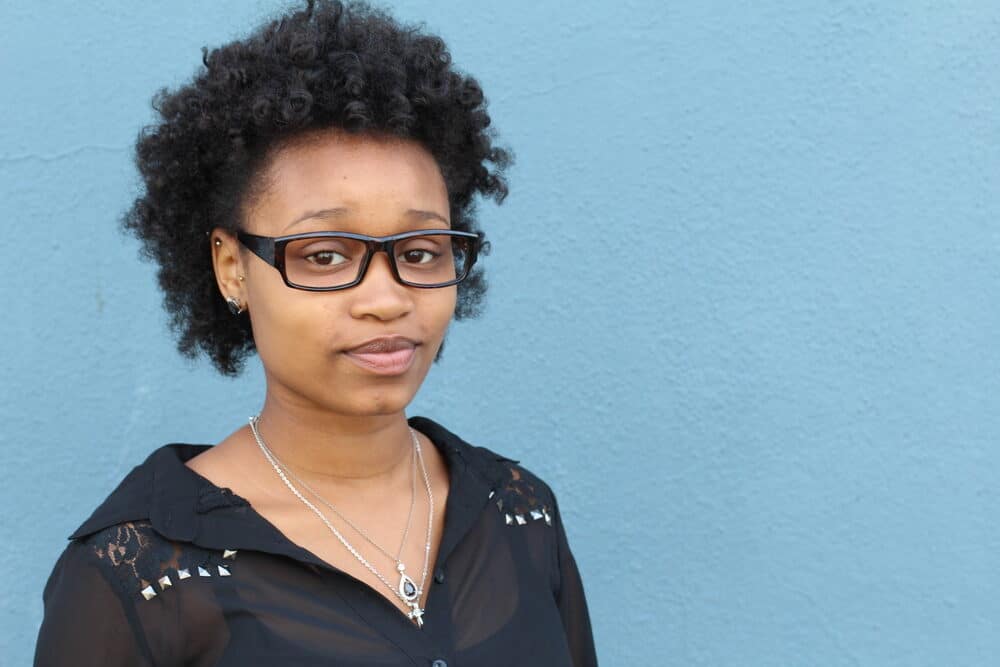
How Often Should Black People Wash Their Hair?
Now, if you're a black person who has just gone natural and are wondering how often you should wash your hair, this section is for you. The answer depends mainly on how curly your hair is, since different hair types require different hair products and regimens.
If your curls are relatively loose and wide, then you can wash your hair 2-3 times a week. For hair that's coily and tight, it's best to shampoo around 1-2 times a week or less and do a deep conditioning session once a week.
To do a deep conditioning session, all you need to do is generously apply a moisturizing deep conditioner to your clean, damp curls and then rinse it out after about 5 to 10 minutes.
If you're not into deep conditioners, you can try a clay mask. To do so, mix the clay powder with either water or apple cider vinegar according to the instructions on the packaging.
Then leave it on your scalp for 10-15 minutes, and then rinse it out with lukewarm water.
As a general rule of thumb, the tighter your curls are, the less you should wash them. Also, ensure that you primarily use a sulfate-free and gentle shampoo to limit moisture loss during the cleansing process.
Afterwards, you can follow-up with your favorite moisturizing conditioner. Any good conditioner designed for curly hair should work fine. Just experiment if you don't have a favorite, or read this article.
Other Ways to Prevent Hair Dryness
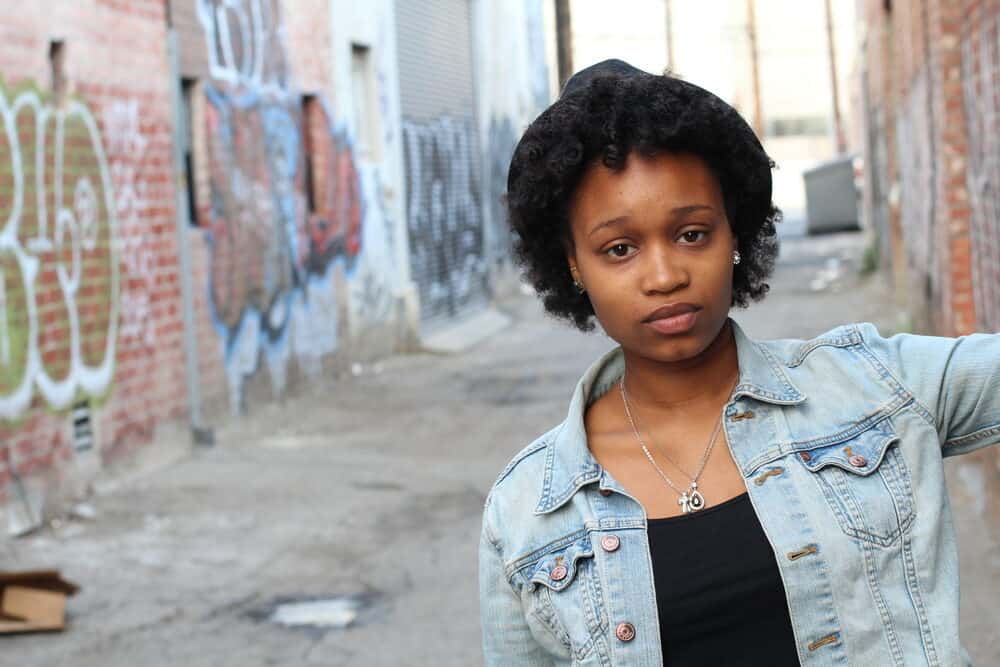
In addition to your washing and conditioning routine, there are some steps that you can take to prevent dryness in your curls. Let's get into them below:
- Avoid cotton pillowcases. Most, if not all, of us have gotten used to sleeping on cotton pillowcases. They are super comfy, but your curls don't like them at all. Cotton tends to absorb your hair’s moisture as you toss and turn. This leads to frizzy, dry hair with an increased risk of split ends and hair breakage. So, switch out your cotton pillowcase for a satin or silk one. Unlike cotton, these materials don't absorb moisture from your curls.
- Limit heat styling. Heat does a lot of damage, no matter your hair type. But curls are particularly vulnerable. Styling your hair with heat tools opens your hair cuticles and dries out your hair from the inside. It can even burn your curls instantly. So, we suggest that you limit heat styling as much as possible. The less heat you use, the better. And before using any heating tool, prime your curly hair with a heat protectant. Some women let their hair dry naturally (i.e., air dry) instead of using heated dryers to further limit heat styling.
Choose the Right Shampoo for Black Hair
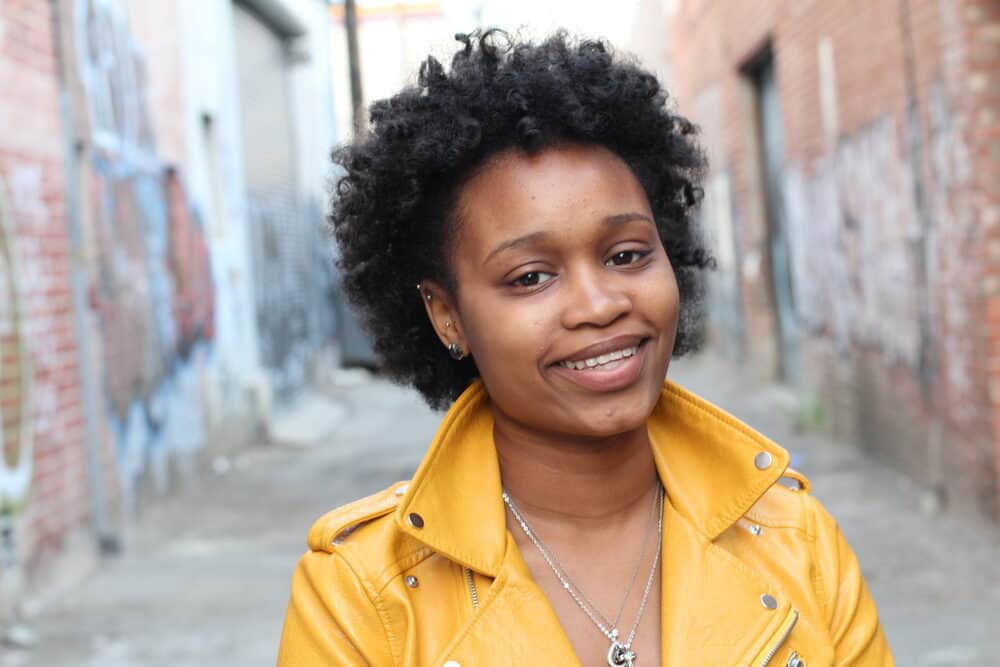
If you choose a shampoo randomly without looking at the ingredients in it, you could end up with a mess on top of your head.
A shampoo that's not formulated for curly hair can result in dryness, breakage, and overall unmanageable hair. Therefore, it's important that black people read shampoo labels carefully.
Here's what to look for in a gentle shampoo for black hair.
- Low to no sulfates. Many think that the more bubbles your shampoo makes, the better it's cleansing your hair. This is a myth that's particularly damaging to people with curls. Those bubbles often come from sulfates, which strip your curls of all their moisture, leaving you with parched, weak strands. Thankfully, hair product manufacturers have created sulfate-free shampoos you can use to get a good cleanse without drying out your curls.
- Moisturizing ingredients. If you've got curly hair, you should always opt for a shampoo with moisturizing ingredients. Oils, humectants, and hydrating creams help to reduce frizz and keep your hair moist.
Note: When you first make the switch to sulfate-free (or low-poo/low-sulfate) shampoo, you'll feel like your hair isn't thoroughly washed. But as your hair adjusts to the lower sulfate levels, you will get used to how your hair should really feel when it's clean - buildup-free, moisturized, and never squeaky.
- How to Wash Your Hair and Not Get Your Face Wet
- How Often Should You Wash Your Hair
- How to Wash Your Hair in the Sink
- Should You Wash Your Hair Before a Haircut Appointment
It's imperative for black people to maintain their beautiful tresses by following a proper hair care regimen, which begins with proper washing at the right frequency.
We hope that this article has answered all your questions and helps to dispel some of the nonsensical rumors that create a stigma among members of the black community.

